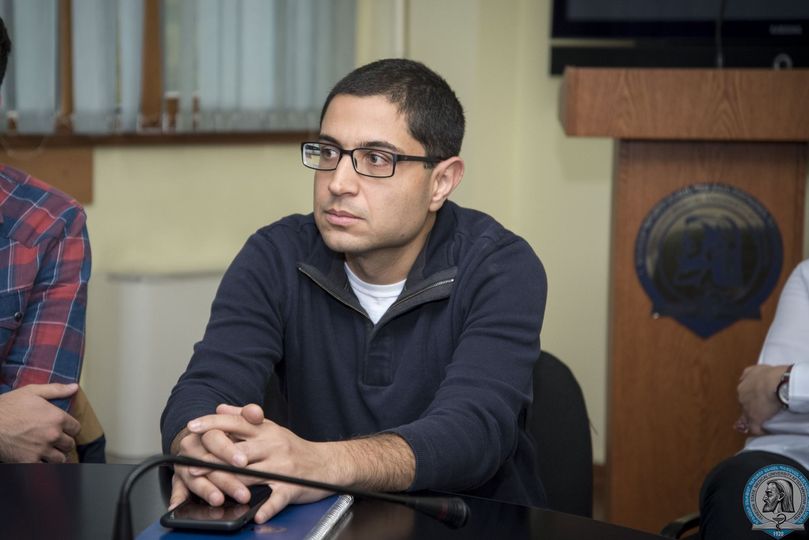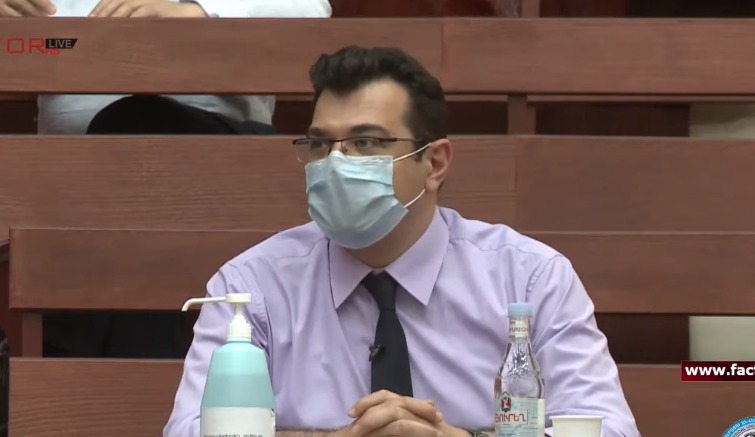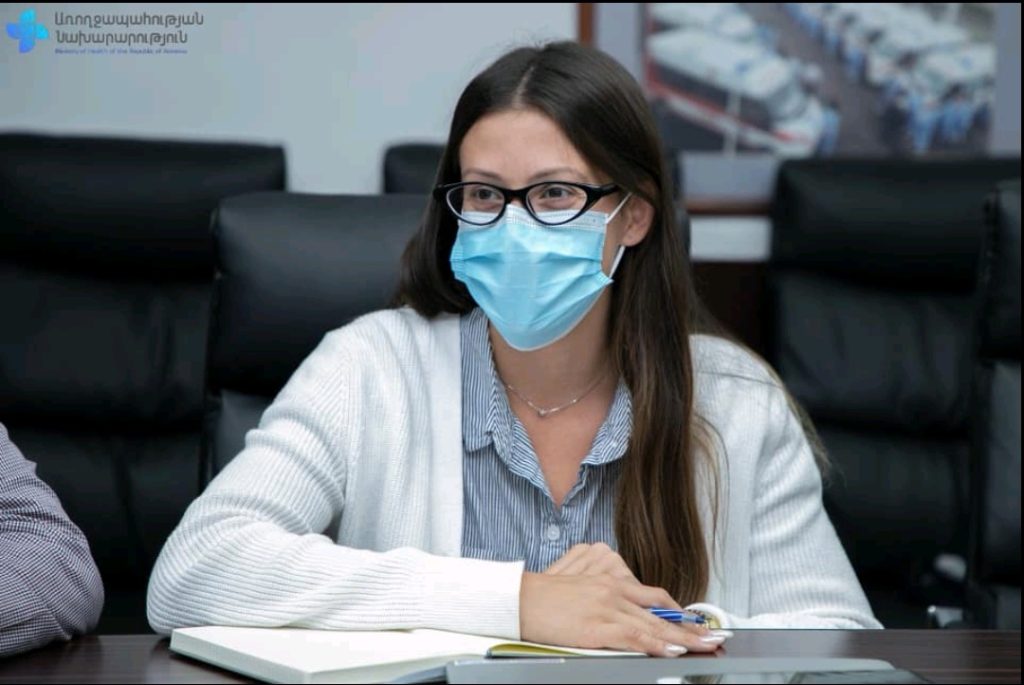Armenian diaspora doctors propose changes to healthcare system in Armenia
Armenian diaspora doctors help reform Armenia’s healthcare system
Doctors and representatives of the Armenian diaspora, approximately a hundred people from over a dozen countries, have recently arrived in Armenia to help reform the country’s health care system. They came as part of various programs or on their own initiative, some alone, some in groups.
Deep, seemingly unsolvable problems and new challenges – in particular, the lack of various specialists – manifested themselves more sharply in Armenia in 2020 – amid the outbreak of the coronavirus pandemic and the Karabakh war.
At the peak of the pandemic, the Ministry of Health announced that clinics need anesthesiologists, resuscitators, infectious disease specialists, and pulmonologists. While steps were being taken to cope with the pandemic, the 44-day Karabakh war began, which created new problems.
In the healthcare sector, the problem of the lack of specialists became even more acute. Traumatologists-orthopedists; plastic, vascular and maxillofacial surgeons; micro- and neurosurgeons and rehabilitologists were added to the list.
- Diaspora Armenians in Armenia’s civil service – sharing knowledge and skills with homeland
- Buy Armenian: A start-up launched during the second Karabakh war
- ‘The Future Armenian’ – an action plan to rebuild the country
“For systemic changes, the diaspora professionals are needed”
Shant Shekherdimyan is a public health specialist, who worked abroad as a pediatric surgeon for many years. He received an invitation to work in Armenia a few months ago and moved to his homeland. Now he is an advisor to the Minister of Health and is trying to use his experience to reform the health sector.

“I think Armenia, first of all, should abandon the approach that the situation in the healthcare system can be improved by building hospitals or training doctors. In my opinion, this is the wrong approach. If we make the transition from the concept of creating a system to the idea of quality assurance, the result can be more significant”, Shant Sheherdimyan said.
According to him, a number of problems in the field of health care can be solved only at the expense of local human resources, but for systemic changes and quality improvement, the country needs diaspora specialists.
Among the problems that need to be solved, Sheherdimyan notes geographical redistribution of existing specialists.
In Yerevan, according to a specialist, the number of doctors is almost twice the accepted international standards, while in the regions there is an acute shortage of them.
“This problem is not specific to Armenia only. It is observed in all countries with limited resources. In such cases, the health care system simply has to try to balance the situation”, says Shant.
As for the role of the diaspora in the development of the healthcare sector, in his opinion, short-term visits by diaspora specialists are no longer enough to make a real impact in this process.
“Armenia’s health care needs specialists who are ready to introduce systemic changes here and, in the long term, become participants in extremely complex reforms of the health care system”, says the adviser to the Minister of Health.
He believes that the pandemic and the war of 2020 have to a certain extent already changed the approaches of both the Armenian government and the diaspora specialists, but these efforts are still not enough for significant changes in the system:
“20-25 years ago there were serious problems in Armenia – both in terms of equipment and in terms of specialists. During this period, the diaspora has played a very important role in terms of humanitarian contributions to the health sector.
For 30 years, healthcare in Armenia has been developing, but the format of diaspora participation, unfortunately, has not changed. Diaspora Armenians retained the mentality of humanitarian participation – that is, simply providing assistance. Nevertheless, the approaches of both sides have changed significantly over the past year and a half after the pandemic and the war”.
“Diaspora can give what we don’t have”

According to David Melik-Nubaryan, a public health specialist and professor at the Yerevan State Medical University, cooperation with the diaspora is extremely important today:
“It can give us the main thing – what we don’t have today: skills, experience and work culture. In the post-Soviet period, this culture in our country, it seems to me, has degraded, and the diaspora can help with this”.
He sees problems in the Armenian healthcare system in all components, in particular,
- financing,
- provision of services,
- lack of mid-level nursing staff,
- redistribution of professional potential,
- advanced training and improvement of skills,
- reporting and control.
Based on this, the specialist comes to the conclusion:
“If we sum up all the reasons noted, we can say that in general there is a problem of the quality of the health care system. That is, we are not sure that our system creates value for the money we spend. As a result, people do not appreciate and do not trust it as much as we would like them to”.
According to Shant Sheherdimyan, in order to stimulate professional immigration from the diaspora, Armenia now needs to develop a clear state strategy and a concept for long-term development. This will enable diaspora specialists to understand the priorities of the country and present possible options for assistance.
“All of us – both in the country and abroad – must know what our priority programs and issues requiring urgent solutions are, so that we can move forward with joint efforts”, he says.
Araz Chiloyan, a public health specialist from the diaspora, also speaks of the need for a long-term strategy.

She moved to Armenia from the American city of Boston at the height of the Karabakh war. In 2020-2021, she worked at the Ministry of Health under the For the cause (“I Gortc” – in Armenian) program. This is a project aimed at attracting foreign compatriots to work in the government.
After the end of the invitation, she decided to continue working at home, now she is an advisor to one of the deputy ministers of health and oversees the processes related to the pandemic.
Araz worked at the Boston Children’s Hospital before moving to Armenia and draws parallels:
“Boston Children’s Hospital has a long-term development strategy that is reviewed every month. Today, the Armenian healthcare system reacts to processes in a very short-term framework, that is, we are engaged in what is happening at the moment or this week.
I think this approach can be changed by the joint efforts of specialists from the diaspora in order to understand at what stage of development Armenia will be, for example, in 5, 10, 30 years”.
David Melik-Nubaryan, who has many years of experience in the state system, in response to the observations of experts from the diaspora, says that Armenia has a health development strategy on paper, but it is not applied:
“The strategy for the development of the health care system was written and approved 2 years ago. Now it has remained in one of the offices. We just need to put it back on the agenda, revise and implement it. In 2016, and then after the Velvet revolution and the change of power in 2018, the government program provided for reforms of the health care system.
But the change of political power along with Covid and the war, led to the fact that these serious reforms were not implemented”.
“Pandemic and war accentuated the need to return to Armenia”
Since the early autumn, four specialists who have arrived from abroad have begun working in the Ministry of Health. They work to improve the quality of e-health and laboratory services, epidemiological measures and continue to study and implement international experience.
According to Shant Shekherdimyan, the involvement of specialists from the diaspora in reforming the healthcare system is a good example of using their potential and can be used as a model for other areas as well:
“It is impossible to become a participant in changing the system from afar. If you want to contribute to this process, you need to do it on the spot, here. I always had a desire to return to Armenia one day, the pandemic and the war only accentuated this need”.
Shant moved to Armenia with his family, as he believes that, among other things, there is a safe environment for children.
Araz Chiloyan’s move to Armenia began with the purchase of an apartment in his homeland, and in September of this year she got married there.
“Especially after the war, many Armenians living abroad are waiting for an opportunity to move to Armenia and contribute to the development of the country. There are also those who have already moved to Armenia with their families. The war made people understand – the time has come to return to their homeland”, she says.


















